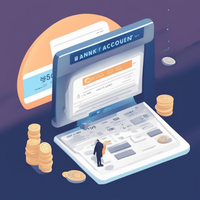Fintech

The banking industry has undergone significant transformation in recent years due to the rapid advancement of financial technology, commonly known as fintech. Fintech has disrupted traditional banking processes and services, leading to the emergence of innovative solutions that are shaping the future of banking. In this overview, we will explore some key future trends in banking fintech and their potential impact on the industry.
1. Artificial Intelligence (AI) and Machine Learning
Artificial intelligence and machine learning technologies have gained tremendous momentum in the banking sector. These technologies enable banks to leverage vast amounts of data for improved customer service, risk management, fraud detection, and personalized financial advice. AI-powered chatbots are being used by banks to provide real-time assistance to customers while reducing costs associated with human resources.
2. Big Data Analytics
The availability of massive volumes of data holds great potential for banks to gain valuable insights into customer behaviors, preferences, and needs. By harnessing big data analytics tools, banks can enhance their decision-making capabilities when it comes to product offerings, marketing campaigns, credit scoring models, and more. This helps create a personalized experience for customers while improving operational efficiency.
3. Biometric Authentication
Traditional authentication methods such as passwords or PINs are gradually being replaced by biometric authentication techniques like fingerprint scanning or facial recognition technology. Biometrics offer enhanced security measures against identity theft and fraud, ensuring that only authorized individuals have access to sensitive information or perform transactions.
4. Blockchain Technology
Blockchain is a decentralized ledger technology that enables secure peer-to-peer transactions without the need for intermediaries such as banks or governments. Its applications in banking include cross-border payments, smart contracts automation, trade finance facilitation through digitized documentation systems (e.g., letters of credit), and decentralized digital identities.
5. Digital Wallets and Contactless Payments
Digital wallets have gained popularity due to their convenience and ease of use. Mobile payment solutions such as Apple Pay, Google Pay, or Samsung Pay allow users to make secure contactless payments using their smartphones. This trend is expected to continue growing as more consumers embrace digital payments, reducing the reliance on physical forms of currency.
6. Open Banking
Open banking refers to the practice of sharing customer data between banks and third-party financial service providers through standardized APIs (Application Programming Interfaces). This collaborative approach promotes increased competition and innovation in the banking industry by allowing customers to securely share their financial information with fintech firms or other authorized institutions who can then offer tailored services like budgeting tools or loan comparison platforms.
7. Robo-Advisors
Robo-advisors are automated investment platforms that leverage algorithms to provide personalized investment advice and portfolio management services at a fraction of traditional costs. These algorithms analyze user preferences, risk tolerance, financial goals, and market conditions to recommend suitable investment strategies.
8. Internet of Things (IoT) for Banking
The integration of IoT devices into banking processes enables banks to offer value-added services such as connected car loans or insurance based on driving behavior data collected from telematics devices installed in vehicles. Similarly, smart home technologies can be used for remote monitoring and energy-efficient mortgage financing options.
In conclusion, the future trends in banking fintech revolve around leveraging advanced technologies such as AI, big data analytics, biometrics authentication, blockchain technology, digital wallets/contactless payments, open banking APIs/interoperability standards for collaboration among different players within the industry ecosystem like banks/fintechs/payment processors/API gateways/regulators etc., robo-advisory services powered by sophisticated algorithms & machine learning models along with real-time personalized finance/tax planning tips through conversational/chatbot interfaces operating across various channels including web/mobile apps/social media platforms etc., IoT-based applications transforming traditional bank's business model from being reactive towards proactive including innovative possibilities like on-demand personalized banking packages/services tailored according to individual customer's unique preferences etc.
Sponsored
Sponsored
Sponsored
Explore More:

Market Risk
Risk management in banking is a critical aspect of the banking industry. Managing...

Credit Risk
Risk management in banking is a critical aspect of the banking industry. Managing...

Risk Management in Banking
Risk management in banking is a critical aspect of the banking industry. Managing...

Glass-Steagall Act
The Glass-Steagall Act, also known as the Banking Act of 1933, was an...

Dodd-Frank Act
The Dodd-Frank Act, officially known as the Dodd-Frank Wall Street Reform and Consumer...

Basel Accords
Banking regulations refer to the laws, rules, and guidelines imposed by regulatory authorities...

Banking Regulations
Banking regulations refer to the laws, rules, and guidelines imposed by regulatory authorities...

Cash Flow Statement
The cash flow statement is an important financial statement for banks as it...

Income Statement
The income statement is an essential component of a bank's financial statements. It...

Balance Sheet
The balance sheet is one of the most important financial statements used by...

Bank Financial Statements
Bank financial statements provide a comprehensive overview of a bank's financial performance and...

Online and Mobile Banking
In today's rapidly evolving technology landscape, the banking industry has undergone a significant...

Credit Cards
Credit cards are one of the most prominent banking products offered by financial...

Understanding Different Types of Bank Loans: Features and Benefits for Personal and Business Financing
Loans are a core offering of banking institutions, providing individuals and businesses with...

Checking Accounts
A checking account is one of the most common banking products used by...

Saving Accounts
Introduction In the world of banking, saving accounts are one of the most...